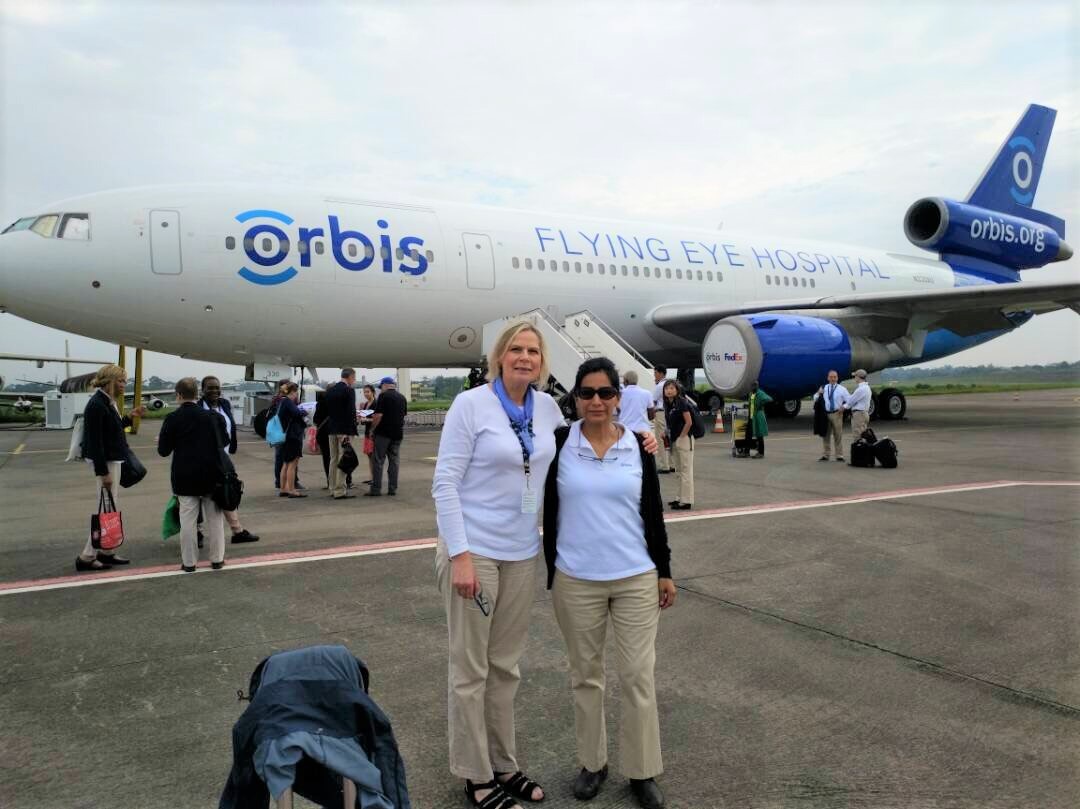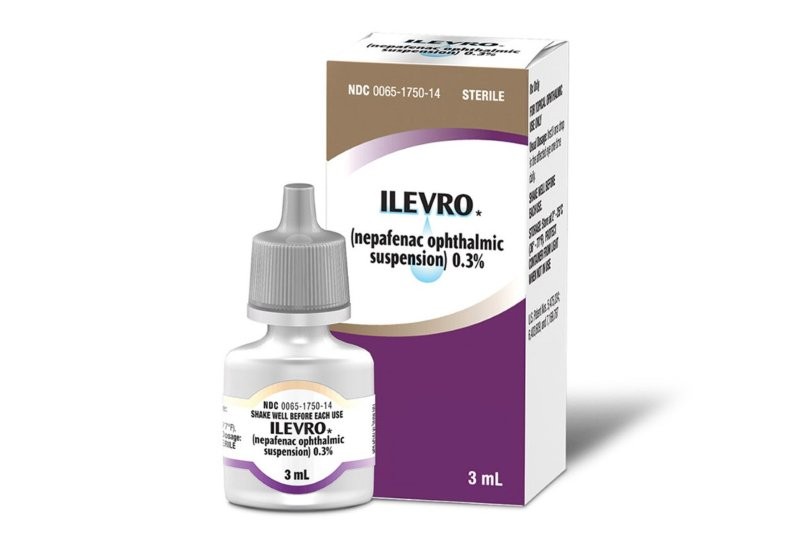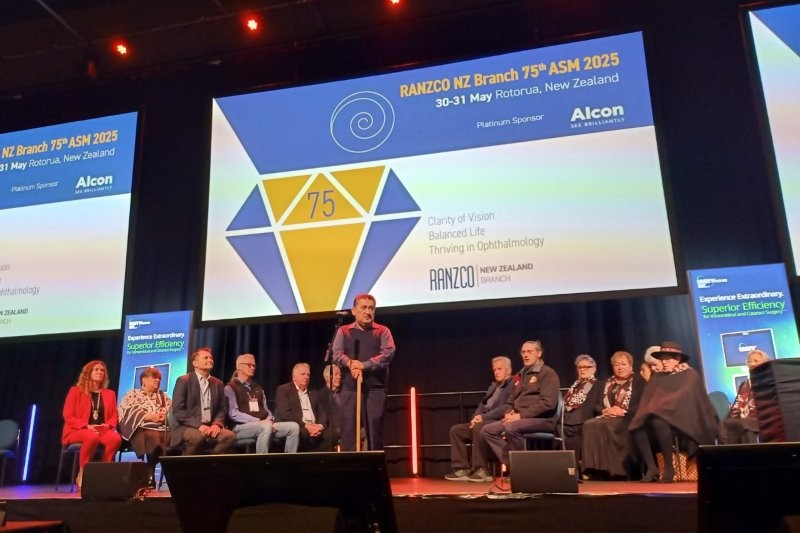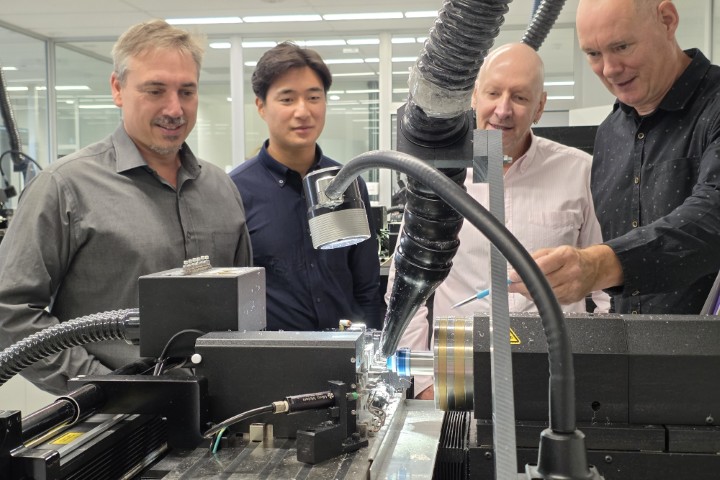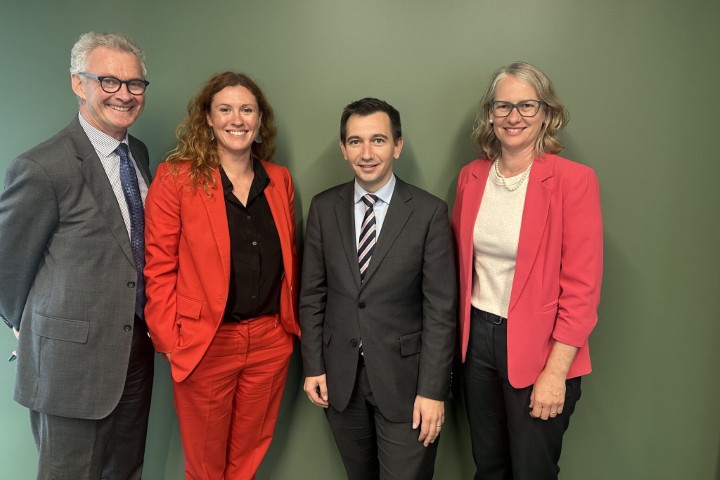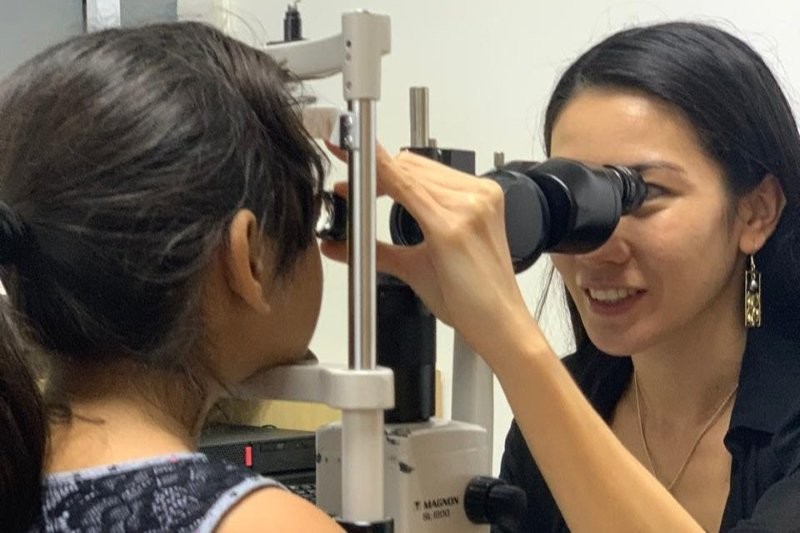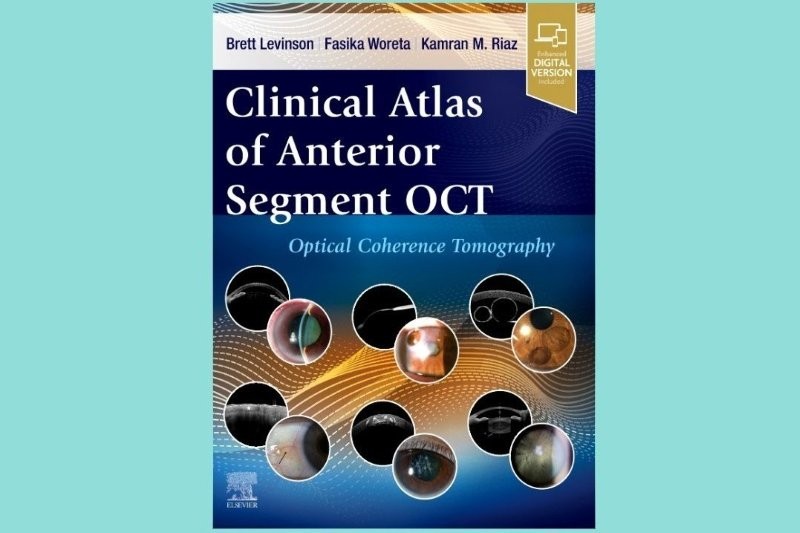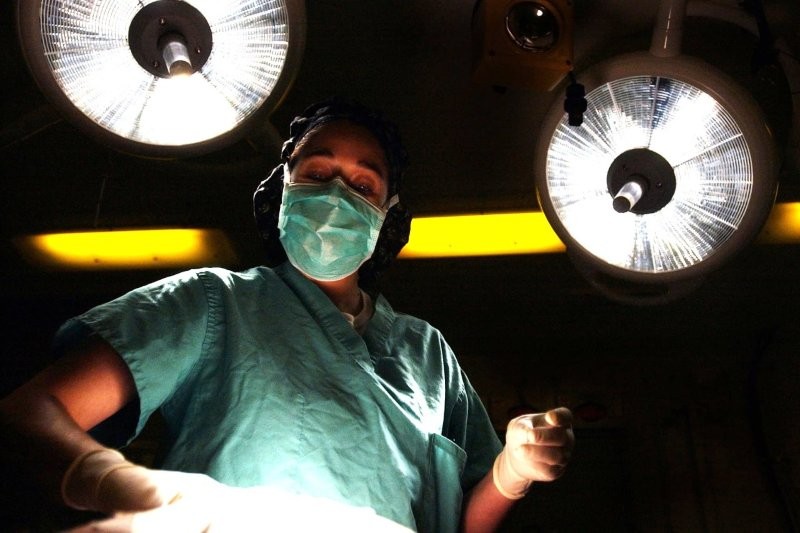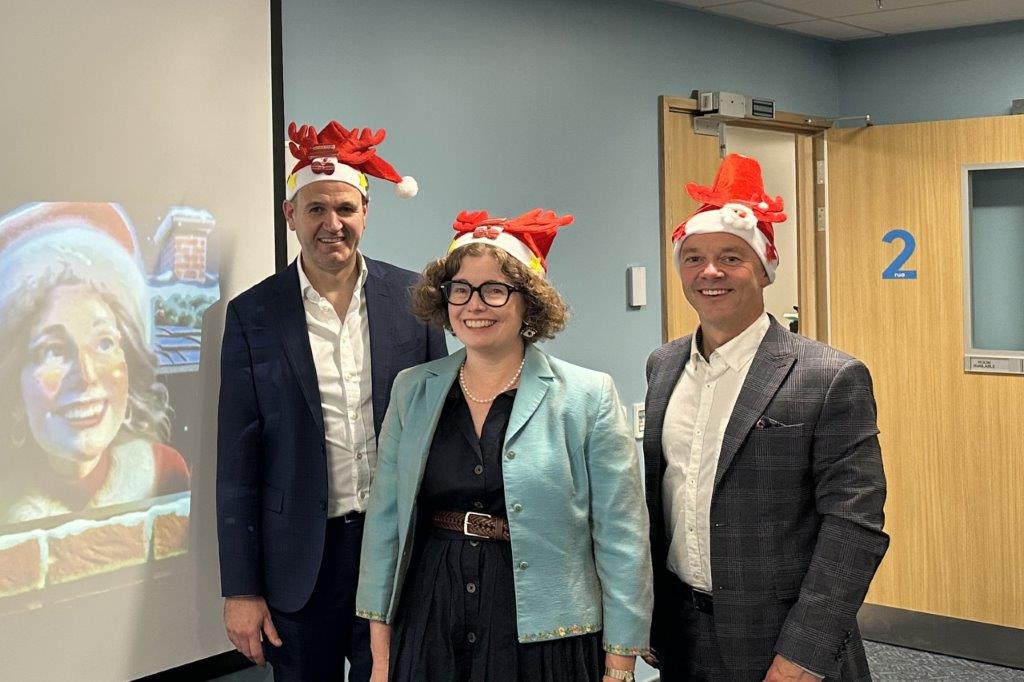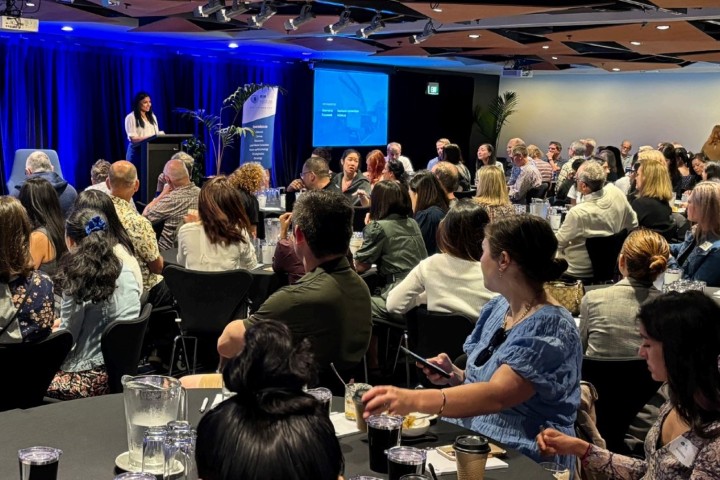In Cameroon with Orbis
Orbis is the world’s only accredited teaching flying eye hospital. It was set up in 1982 by an American ophthalmologist called Dr David Paton who felt that if people were not able to travel to increase their knowledge, then the next best thing would be to travel to where the knowledge and skills are needed.
Over time, Orbis has evolved from upskilling ophthalmologists and nurses to providing hands on training for biomedical engineers, orthoptists and optometrists. It organises study symposiums with guest speakers and, with the advent of the internet, has also established Cybersight to enable information to be exchanged remotely, including triaging of patients for future programmes and timely advice for difficult cases.
A core group of staff including nurses, doctors, anaesthetists, administration staff, engineers and mechanics fly regularly with the new MD-10 plane, which replaced the aging DC-10 last year. People like me, and other visiting professionals also join the team for a week or two to share knowledge and skills with overseas colleagues.
For this trip, Orbis was again invited by Philémon Yang, the prime minister of Cameroon, to come for four weeks to strengthen the clinical and operational capacity of Orbis’ partner hospitals, Yaoundé Central Hospital and Magrabi ICO Cameroon Eye Institute. The government hospital is a large hospital with limited resources, while Magrabi is newly built with better resources, but with doctors who have limited surgical experience. Cameroon is home to 25 million people with about 73 ophthalmologists to treat the main causes of avoidable blindness namely cataract, glaucoma, onchocerciasis, trachoma with corneal scarring, and refractive error. Because of the number of people, the scarce resources and under qualified staff, screening and referral of eye disease and access to quality eye care remains a great challenge.
On the ground in Yaoundé (9 Oct - 3 Nov 2017)
Whilst in Cameroon, I had the opportunity to work on the Orbis airplane for one week and in the local hospital for one week. My week on the airplane coincided with world sight day on October 12th which was very appropriate.
Every Monday is screening day. Patients are chosen according to the best teaching cases for the widest audience. They are thoroughly screened and anaesthesia always has the last word on patient suitability. The screening process also includes patient education and media consent as well as the relevant tests and diagnostics for surgery.
While the bulk of the trainees were in the class room at the front of the plane, one of the local doctors would assist the surgeon. The operation was televised via a live feed to the classroom. The visiting ophthalmologist would talk through the surgery and take questions as they were operating. The sub specialties focused on in my first week were paediatric strabismus under general anaesthetic, trabeculectomy with MMC and SICS. While this was happening, anaesthetic and nursing trainees were participating in learning opportunities at the back of the plane while admitting patients, administering local anaesthetic and caring for patients, post-anaesthesia. The plane is a very compact place and it is always a hive of activity!
After surgery, patients were driven back to the local hospital by ambulance and seen post-operatively by the staff ophthalmologist. The traffic in Yaoundé is alarming to say the least and there are not too many times in my life where I have had a police escort to and from my place of work!
My second week was working in the local hospital which was a sober reality check after the state-of-the-art flying eye hospital. The local hospital had no recovery area, which meant general anaesthesia patients had to be recovered in theatre. Working together, the Orbis recovery room nurses and the local nurses created a pre and post-operative area which functioned well, despite no air conditioning!
During the second week, the three sub-specialties the local doctors wished to have more training in were oculoplastics and, again, glaucoma and SICS. Our cataract specialist, Dr Ruchi Goel from Maulana Azad Medical College, India, and her experience with small incision cataract surgery was phenomenal, having operated on hundreds of Indian patients. The oculoplastics surgeon, Dr Thomas Johnson from the University of Miami Miller School of Medicine, was a veteran of Orbis’ programmes, both on the plane and in local hospitals. He was well used to teaching with the aid of an interpreter and the local trainees were like sponges: engaged and enthusiastic, especially those who worked with us in the operating theatre. French and English are the official languages in Cameroon with more people speaking French, so my high school French got a good work out!
An enormous amount of planning and work goes into programmes like this, with many people wholeheartedly contributing. This was an amazing and humbling experience for me, not least because of the people we were able to help, but also the spirit of cooperation between local professionals and Orbis personnel. The teamwork, camaraderie and dedication, demonstrated time and again by everyone, made this programme a great success.
*Anita Gerber-Setz, RN, BN, OND, is the Clinical Nurse Manager and passionate ophthalmic nurse with Christchurch Eye Surgery, which she says she’d like to thank for being so supportive of her trip to Cameroon with Orbis










